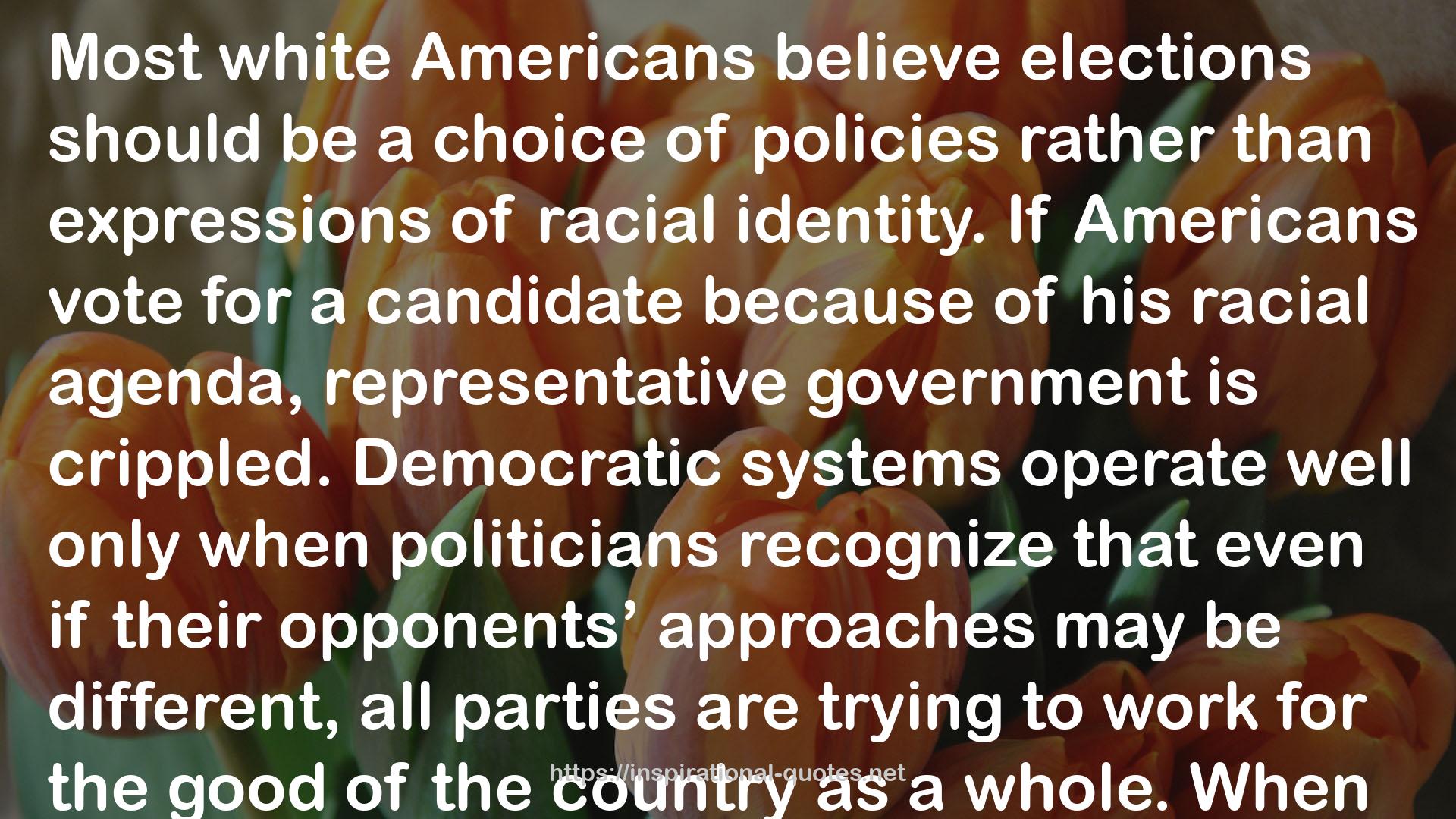" Most white Americans believe elections should be a choice of policies rather than expressions of racial identity. If Americans vote for a candidate because of his racial agenda, representative government is crippled. Democratic systems operate well only when politicians recognize that even if their opponents’ approaches may be different, all parties are trying to work for the good of the country as a whole. When politics fracture along racial lines, it becomes easy to assume that elected officials work for narrow, ethnic interests, and political contests become very bitter.
The ultimate logic of politics in a racially fractured electorate is a system of quotas in which seats in elective bodies are set aside in proportion to the racial composition of the population. This is the formula hopelessly divided countries such as Lebanon and immediate post-white-rule Zimbabwe and South Africa hit upon. It could be the solution for other divided countries such as Iraq, Sudan, Fiji, Malaysia, or Sri Lanka, where politics is a perpetual squabble over ethnic interests.
There is already implied support for proportional racial representation in the federal approach to voter districts. The US Department of Justice has long required that congressional districts be gerrymandered to create black and Hispanic majorities that are expected to vote along racial lines and send one of their own to Congress. The department also routinely sues cities that choose their governing bodies in at-large elections. If, for example, a city is 30 percent black but has no blacks on the city council because all candidates must appeal to the entire city, voting must be switched to a ward system, with wards drawn so that blacks—by voting for people like themselves have approximately 30 percent of the council seats. In 2006, the Justice Department used precisely this argument to threaten Euclid, Ohio, with litigation if it did not replace its at-large elections with a system of eight separate wards.
In 2010, Hispanics made the same argument when they sued the city of Compton: They claimed that an at-large voting system shut them out and kept the city council all black. "
― Jared Taylor , White Identity: Racial Consciousness in the 21st Century
